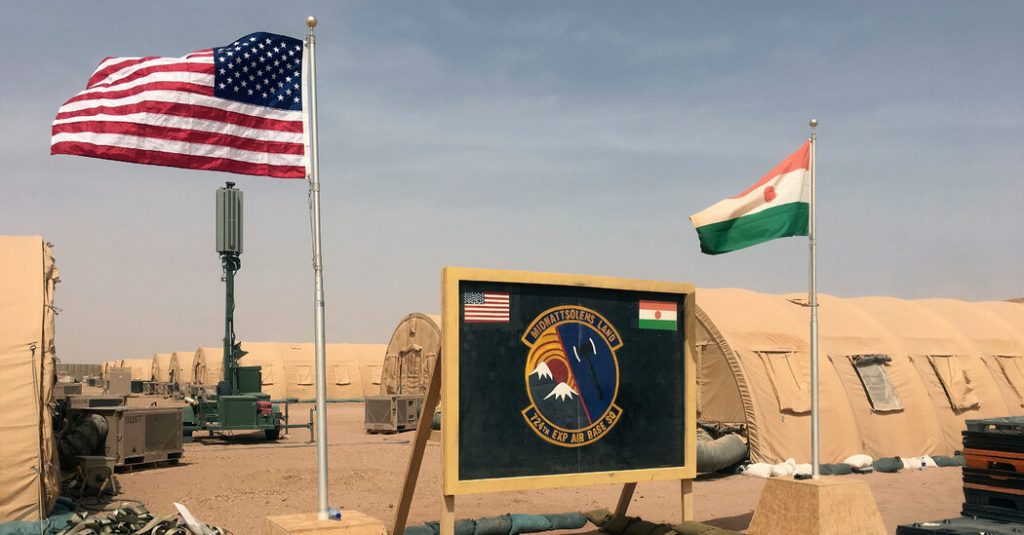The United States is set to withdraw more than 1,000 military personnel from Niger, which will significantly impact U.S. counterterrorism and security policies in the Sahel region of Africa. This decision comes after high-level diplomatic talks with Niger’s prime minister, Ali Lamine Zeine, where the U.S. expressed disagreement with Niger’s recent foreign policy shifts towards Russia and Iran, as well as the failure of the military government to outline a path to return to democracy. Niger had previously announced the revocation of its military cooperation deal with the U.S., following contentious meetings with American officials.
Countries in the Sahel region have been increasingly turning to Russia and other non-Western partners, leading to the breakdown of military ties with the United States. Despite efforts by American diplomats to salvage the deal with Niger’s military government, talks ultimately collapsed amid growing anti-U.S. sentiment in the country. Protesters in Niamey recently called for the withdrawal of American armed forces, coinciding with Russia’s delivery of military equipment and instructors to Niger. This rejection of military ties with the U.S. follows France’s withdrawal of troops from the region.
The withdrawal of U.S. forces from Niger will involve an orderly and responsible process that will take several months to complete. The troops stationed at U.S. Air Base 201 in northern Niger have been largely inactive since the military coup that ousted President Mohamed Bazoum. The coup led to the suspension of security operations and development aid to Niger, further complicating the U.S.’s efforts to maintain its partnership with the country. The arrival of Russian instructors and air-defense systems in Niger has further strained prospects for cooperation between the U.S. and Niger.
U.S. officials had been working to prevent a formal rupture in relations with Niger’s junta, with the new U.S. ambassador to Niger engaging in regular discussions with the military-led government. The Pentagon has been planning for contingencies in case the talks failed, considering the establishment of new drone bases in coastal West African countries as backups to the base in Niger. Niger’s strategic location and previous partnership with the U.S. will be challenging to replace in the short term, according to experts familiar with the region.
The U.S. government remains concerned about the consequences of a military withdrawal from Niger on both the local population and American diplomatic and strategic interests. The loss of a military asset in Niger will have significant implications for U.S. and allied efforts in the Sahel region, making it difficult to replicate the benefits of the partnership with Niger. The evolving security landscape in West Africa, marked by increased Russian involvement and shifting alliances, will require the U.S. to reassess its approach to regional security and counterterrorism efforts.


